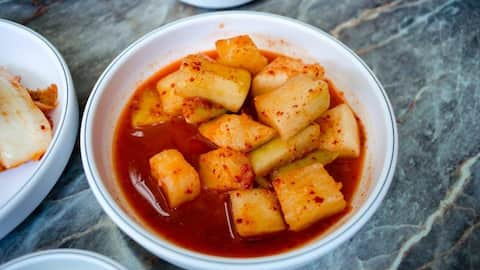Korean habits that you should follow for healthy living
What's the story
Understanding other cultures and learning about their unique habits is always fascinating. And when it comes to South Korea, the craze is not just limited to K-dramas, cosmetics, and gadgets as several people around the world are positively influenced by the kind of lifestyles the locals of the nation follow. Today, let's discuss some Korean habits you could practice for good health and well-being.
Habit 1
Including kimchi and other fermented foods in your daily diet
In Korea, most meals come with a side dish which is, typically, made of fermented ingredients. One such popular offering is kimchi, a traditional Korean banchan consisting of salted and fermented vegetables. Kimchi and other fermented foods are good for the gut and help in improving digestive health. This aids in weight loss, good mental health, healthy skin, and immunity enhancement.
Habit 2
Walking long distances and practice traditional Korean exercises
Koreans would rather walk than take public transportation. This keeps their lifestyle active as walking improves their cardiovascular health, contributing to overall health. Additionally, they also indulge in traditional Korean exercises like Taekkyeon (Korean martial arts) and Jeongsen (Korean yoga), both of which add to their improved flexibility, strength, and mental peace. They also hike a lot, thanks to the geography of their country.
Habit 3
Brushing teeth after every meal
Koreans are conditioned to brush their teeth at least three times a day starting at a young age. Called the "333 brushing rule," Koreans brush their teeth for three minutes, at least three times, which is once after the three meals of the day. It's common for Koreans to have a toothbrush and toothpaste at their workplace, which might surprise you.
Habit 4
Enjoying homecooked food over everything else
Koreans love to cook at home and enjoy homemade meals. No matter how busy they are, they take their meals and eating habits very seriously. This is also how they keep away from foods rich in processed sugar, oil, artificial sweeteners, and artificial flavors. They also avoid bread, so much so that you won't find them much in restaurants or homes in South Korea.
